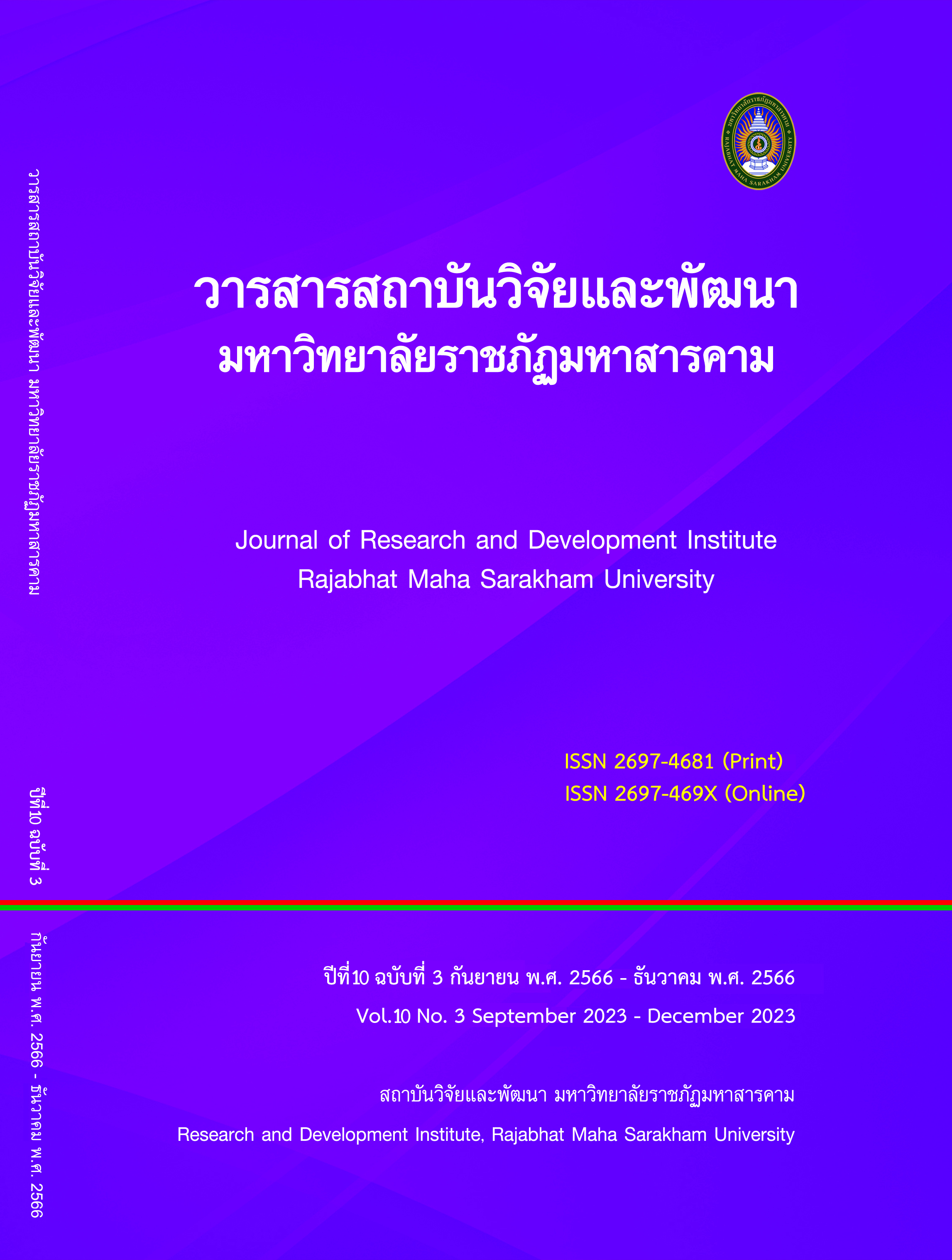Development of active learning activities on the rate of chemical reactions for Grade 11th students
Keywords:
Active Learning, Achievement, Satisfaction, ChemistryAbstract
The objective of this research was to 1) Enhance innovative learning activities on the topic of chemical reaction rates for Grade 11th students to achieve efficiency according to the standard of 75/75. 2) The aim is to compare the academic achievement of students with a benchmark of 75 %; and 3) The study investigates the satisfaction level of students towards the implementation of innovative learning activities. The study focuses on a group of 13 Grade 11th students from Phongam Pitayanukul School. The tools utilized include: 1) an innovative learning activity-based curriculum plan, 2) a learning outcome assessment test, and 3) a student satisfaction questionnaire. Data analysis will involve the use of percentages, means, standard deviations, and t-tests.
The research findings indicate that: 1) The implementation of innovative learning activities for Grade 11 students has been effective, with an achievement level of 75.58/79.23, which meets the established criteria. 2) The learning outcomes of Grade 11th students through the implementation of innovative learning activities are consistent with the benchmark of 75 %. 3) Overall, students express a high level of satisfaction towards the implementation of innovative learning activities (= 4.89, S.D. = 0.26)
References
Duangjampa, J. (2021). Development of Culturally Responsive Learning Activities on Thai Culture for Grade 10th. (Master's thesis). Mahasarakham: Mahasarakham Rajabhat University.
Funfuengfu, V. (2019). Successful Implementation of Active Learning Activities. Journal of Humanities and Social Sciences, 9(1), 135-145.
Ministry of Education. (2017). The Basic Education Core Curriculum B.E. 2008 (Revised Edition B.E. 2017). Bangkok: Office of the Prime Minister.
Nanet, T. (2017). The Effects of Cooperative Learning Activities with High-Level Questions on Students' Ability to Justify and Their Achievement in Mathematics: The Case of Functions in Grade 10th. Journal of Curriculum and Instruction, 9(26), 77-89. Sakon Nakhon Rajabhat University.
Office of the Basic Education Commission. (2019). Guidelines for Counseling to Develop and Promote Active Learning in Accordance with the Policy of Reducing Learning Time and Increasing Learning Efficiency. Bangkok: Royal Agricultural University Cooperative Limited.
Phon Ngam Pitthayanukul School. (2021). Internal Quality Assurance Report of Phon Ngam Pitthayanukul School 2021. Maha Sarakham: Phon Ngam Pitthayanukul School, Maha Sarakham Educational Service Area Office.
Phonthadawit, N. (2016). Active Learning Management (2nd ed.). Bangkok: Triple Education.
Saraphai, L. (2017). Development of Learning Outcomes and Learning Behavior inBiology by Using Active Learning with Light Synthesis for Grade 11th. (Master's thesis). Mahasarakham: Mahasarakham Rajabhat University.
Srisa-ard, B. (2010). Preliminary Research (8th Edition). Bangkok: Suwiriyasarn.
Institute for the Promotion of Science and Technology Education, Ministry of
Education. (2018). Indicators and Learning Content for the Core Science Learning Area (Revised Edition, 2017) According to the Basic Education Core Curriculum, Buddhist Era 2551. Bangkok: Cooperative Agricultural Printing House, Thailand.
Suprom, S. (2018). Developing Self-Directed Learning Abilities in the 21st Century for Lower Secondary Students. Ubon Ratchathani Journal of Research and Evaluation, 7(12), 35-145.
Downloads
Published
How to Cite
Issue
Section
License
Copyright (c) 2023 วรนิษฐ์ ศิระพัฒน์ปรีดา, สมาน เอกพิมพ์, ธัญญลักษณ์ เขจรภักดิ์

This work is licensed under a Creative Commons Attribution-NonCommercial-NoDerivatives 4.0 International License.
Articles that are published are copyrighted by the authors of the articles







